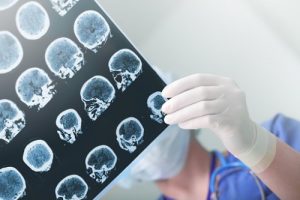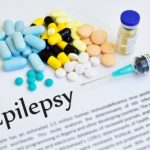 Epilepsy, characterized by seizures, is a neurological condition and is the fourth most common type of neurological disorder. It affects people irrespective of their ages.
Epilepsy, characterized by seizures, is a neurological condition and is the fourth most common type of neurological disorder. It affects people irrespective of their ages.
Purple day is held on March 26th every year to spread awareness of this neurological condition worldwide. An estimated 50 million people have epilepsy worldwide, and 50 percent of these cases have unknown causes. CDC describes epilepsy as a neurological condition with recurrent seizures.
Advertisement
We at Bel Marra Health have compiled a list of some of the new studies to help spread awareness.
Epilepsy can be detected by a simple blood test
Epilepsy is a neurological condition that causes a sudden rise in brain activity, resulting in recurrent seizures. It affects more than 50 million people worldwide, and although drugs have been developed to treat it, only 70 percent of the patients experience relief from the seizures. Doctors often cannot distinguish between epileptic and non-epileptic seizures. Only an accurate and timely diagnosis can determine.
Diagnosing epilepsy
Doctors find it challenging to diagnose epilepsy. According to David Henshall, a professor at the Royal College of Surgeons in Ireland, this is because the main symptom is a seizure, but “it is very rare that a doctor will witness the patient having [one].” Doctors usually rely on a brain test called an electroencephalogram (EEG). Continue reading…
 Epilepsy linked with reduced brain volume and depression
Epilepsy linked with reduced brain volume and depression
The latest research on epilepsy, a neurological disorder, has led to the discovery of a link between epilepsy with reduced brain volume and depression. A research-based article recently published in Brain explains how epilepsy affects the thickness of grey matter in the brain, leading to its progressive decline. In another study published in Epilepsia, scientists found that patients suffering from mood disorders, depression, and seizures have genetic similarities with those who are suffering from epilepsy.
The first research study that led to this discovery was based on an unproven hypothesis that drew a correlation between epilepsy and depression, which physicians had suspected since the ancient times. The research was carried out not just to verify if this was true, but also to improve the way patients with the disorder are screened and give them better treatment. Continue reading…
 Ketogenic diet safe and effective for those with severe epilepsy
Ketogenic diet safe and effective for those with severe epilepsy
A ketogenic diet based on high-fat and low-carbohydrate consumption has been found to help patients who suffer from super-refractory status epilepticus (SRSE)—a severe and often fatal form of epilepsy—in a new study from Johns Hopkins and their colleagues. SRSE is characterized by prolonged and severe seizures that require medically-induced comas in order to prevent additional damage to the brain and body.
The ketogenic diet was found to be effective in treating approximately one third of adult patients with epilepsy who are resistant to anti-seizure medications, and researchers set out to determine if this held true in the most severe cases as well. Continue reading…
 What causes nocturnal seizures? Symptoms, diagnosis, and treatment for nocturnal epilepsy
What causes nocturnal seizures? Symptoms, diagnosis, and treatment for nocturnal epilepsy
Nocturnal seizures are when a person experiences a seizure during sleep. The condition may also be referred to as nocturnal epilepsy. People who suffer from nocturnal seizures often go unaware they suffered from one at all, but may find it difficult to wake up or to stay awake. Nocturnal seizures might occur just after a person has fallen asleep, just before waking, during a daytime nap, or simply when in a state of drowsiness.
Advertisement
The precise reasons why nocturnal seizure in adults occurs is not fully understood but it is thought to be a central nervous system disorder where nerve cell activity in the brain become disrupted leading to seizures development. This may cause periods of unusual behavior and sensations, and sometimes even loss of consciousness. Continue reading…
 Complex partial seizures: Causes, symptoms, diagnosis, and treatment
Complex partial seizures: Causes, symptoms, diagnosis, and treatment
By definition, complex partial seizures only affect specific areas of the brain rather than the entire brain simultaneously. Like other types of seizures, they’re characterized by various electrical surges of energy that take place in different portions of the brain. This sensation can be caused by any number of mitigating factors, which will be discussed below. They typically impact a person’s awareness and can lead to temporary unconsciousness or impaired awareness.
Complex partial seizures are more commonly referred to as focal impaired awareness seizures or focal onset impaired awareness seizures and can affect anyone regardless of age, sex, physical health, or ethnicity. However, people who’ve suffered a stroke, brain injury, brain infection, or have epilepsy are at greater risk. Continue reading…
